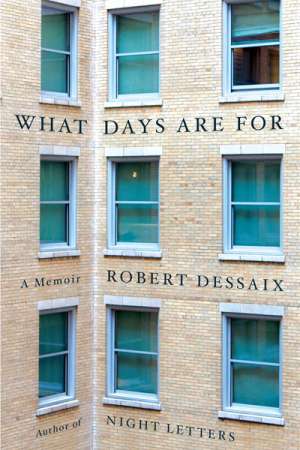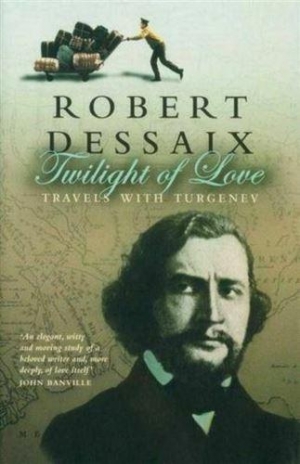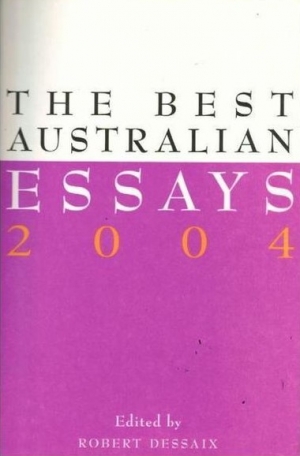Robert Dessaix
Robert Dessaix
Monday, 12 September 2016 Robert Dessaix is a writer, broadcaster, essayist, and memoirist. His best-known books are the autobiography A Mother's Disgrace (1994), the novels Night Letters (1996) and Corfu (2001), and the travel ...
Robert Dessaix is a writer, broadcaster, essayist, and memoirist. His best-known books are the autobiography A Mother's Disgrace (1994), the novels Night Letters (1996) and Corfu (2001), and the travel ...
Open Page with Robert Dessaix
Monday, 01 December 2014This is not the age of criticism. Theory killed criticism. This is the age of reviewing and commentary.
... (read more)Delia Falconer reviews 'What Days Are For' by Robert Dessaix
What this is not, as Kim Williams is quick to tell us (introduction, paragraph two), is a dog-bites-Murdoch account of that nasty business in August 2013 that saw Williams summarily ousted as chief executive of News Corp Australia. Other disgruntled former Ruprechtian courtiers such as former editor-in-chief of The Herald Sun Bruce Guthrie, who sought and won legal redress and indeed wrote an account of his experiences (actually called Man Bites Murdoch), have told their stories, and told them well. But this is not the path of the enigmatic and enlightened Kim. Instead, as he says, this is a book about ‘one of the most precious things in life that drives most of us … our passions’.
... (read more)What a scandal! The Blessed Virgin sprawled on a bed in the half-dark, dead as a doornail, belly swollen, bare legs sticking out for all the world to see. What could Caravaggio have been thinking of?
... (read more)If you’re a theatregoer, then somewhere along the line you’re bound to have seen The Government Inspector, Nikolai Gogol’s comedy about a rapacious nobody being mistaken for a government official by the citizens of a nameless provincial backwater. (They too are nobodies, greedy to be somebodies.) You might remember (since it’s a line that will have evoked both your contempt and your compassion) that the fussy fool Pyotr Ivanovych Bobchinsky, a local landowner, who fails to exist to the point of being almost indistinguishable from his companion Pyotr Ivanovych Dobchinsky, says to the government inspector (who isn’t one):
I beg you most humbly, sir, when you’re in St Petersburg, say to all the different bigwigs there – the senators and admirals: You know, in such-and-such a town, your Excellency, or your Eminence, lives Pyotr Ivanovych Bobchinsky. Just say that: lives Pyotr Ivanovych Bobchinsky … And if you’re speaking to the sovereign, then say to the sovereign as well: in such-and-such a town, your Imperial Highness, lives Pyotr Ivanovych Bobchinsky.
... (read more)Jane Goodall reviews 'As I Was Saying: A collection of musings' by Robert Dessaix
‘I’m sitting in my tower, cogitating.’ Well, Dessaix admits, it’s not a real tower, though he likes to think of it that way. Actually, it is an elevated writing room in his house in Hobart, with a view of the mountains to the west. He is cogitating, not meditating – he’s particular about this – and the thoughts he proceeds to capture on the page are those of a mind given to rambling. As he sits there, the train of thought moves off to connect him with other writers in other towers, widely distant in place and time: Vita Sackville-West at Sissinghurst in Kent, Michel de Montaigne in rural France, W.B. Yeats in County Galway, Rainer Maria Rilke at the Château de Muzot in Switzerland.
... (read more)What a wonderful thing is the essay! What a hymn to the human mind and its vagaries and cogitations – to its humanness. All honour to Australian Book Review and the Cultural Fund of Copyright Agency Limited for celebrating it with the Calibre Prize – and, of course, to our prize-winning hymnists.
To celebrate the essay with this degree of fanfare shows a certain amount of chutzpah, I think – of ‘courage’ in the Sir Humphrey Appleby sense of the word. (‘A courageous decision, Minister.’)
... (read more)Chris Wallace-Crabbe reviews 'Arabesques: A tale of double lives' by Robert Dessaix
Who is, or rather who was, André Gide? I ask this because a distinguished editor warned me, on hearing that I was about to review Robert Dessaix’s enticing new book, that nowadays nobody would remember who Gide was. Ah, the years, the years! It was another story in the time of my youth ...
... (read more)Vivienne Kelly reviews ‘Twilight of Love: Travels with Turgenev’ by Robert Dessaix
In October 1843 the Russian writer Turgenev heard the opera singer Pauline Viardot perform in The Barber of Seville in St Petersburg; for the rest of his life, he remained in thrall to her in an apparently chaste relationship sustained within the framework of her existing marriage. The story of this devotion, and the view that such a love is impossible in the twenty-first century, are the pivots of Robert Dessaix’s new book, Twilight of Love: Travels with Turgenev. Dessaix never loses sight of his central argument. But he is not a linear thinker, nor a simple writer. He swoops and dives, deft and sharp as a wattlebird, over a range that is spiritual and intellectual as well as geographic and temporal. His book concerns itself with much beside the significance of the relationship between Turgenev and Viardot: a distinctively Australian apprehension of Europe; the experience of travel; the ways in which loving relationships can bring depth to travel and vice versa; the links between history, tourism and imagination; economic and social upheavals in Russia; and the nature of civilisation, to mention only a few.
... (read more)Delia Falconer reviews ‘The Best Australian Essays 2004’ edited by Robert Dessaix
Since the publication of the inaugural Best Australian Essays in 1998, Black Inc.’s ‘Best’ series has grown into an impressive franchise that now takes in the Best Australian Stories, Best Australian Poems and Best Australian Sportswriting. That, until this year, the essays, stories and regular Quarterly Essay should all have had a single editor, Peter Craven, seems in retrospect quite extraordinary. It was perhaps inevitable that such an empire would eventually fragment – evolving, say, into a rotating series of guest editorships under Craven’s direction. But his departure from Black Inc. early this year, after a disagreement with publisher Morry Schwartz over the future of the Quarterly Essay series, came as a shock to followers of this series.
... (read more)






